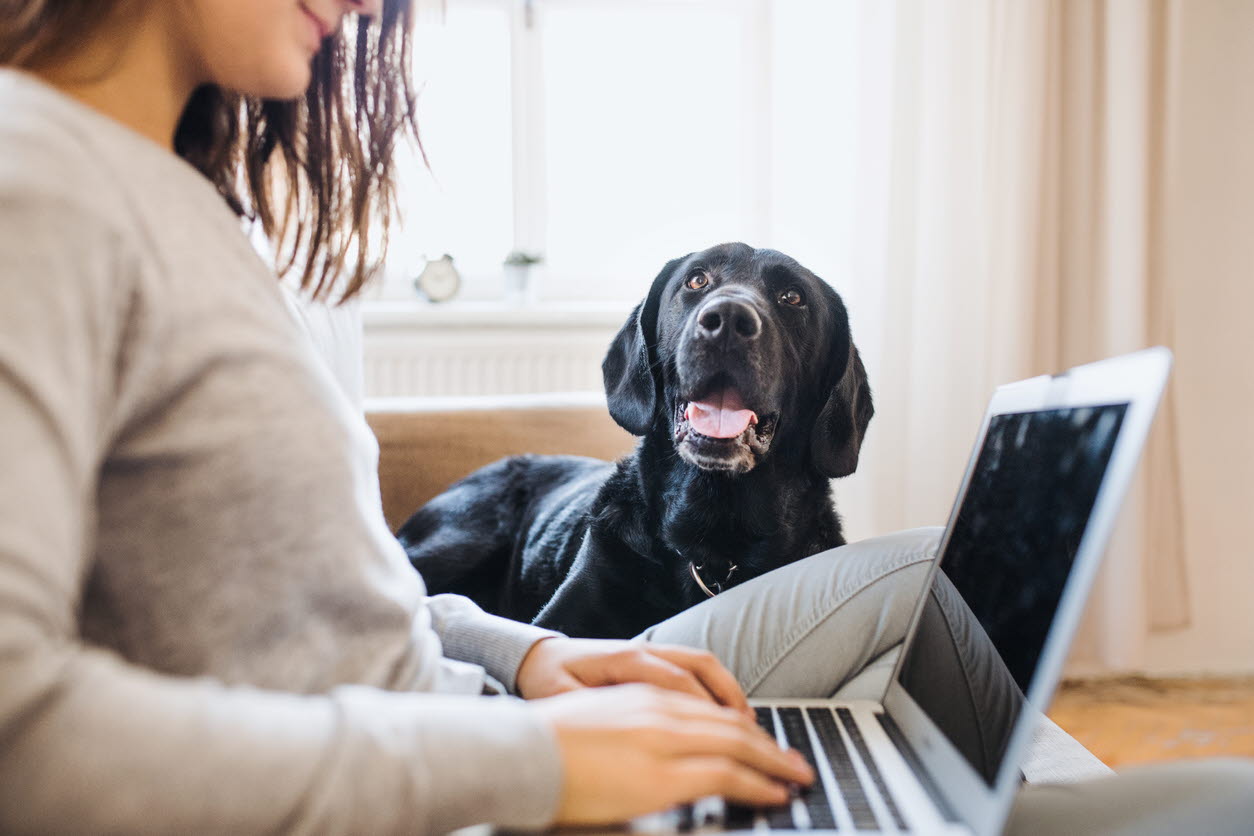
Key points
- There is currently no evidence you can get COVID-19 from your pet.
- Keep your pets with you in your family unit.
- Plan for the care of your pets in case you need to go to hospital.
- Continue to practice good hand hygiene before and after handling your pet, their food and their food and water bowls.
- Review advice from your veterinary clinic before you visit. Follow their instructions to keep your family and veterinary staff safe from COVID-19.
Can COVID-19 infect pets?
Worldwide, there are only a few reports of cats and dogs testing positive to COVID-19. These incidents have only occurred in animals which have been in close contact with an infected owner. There are no reported cases in domestic animals or wildlife in Australia.
There is currently no evidence that pet animals have been involved in the spread of COVID-19 to humans. The main risk of COVID-19 spread is from human-to-human transmission.
During the current lockdown keep your pets with your family. You can exercise with your dog, but we suggest avoiding close interactions with other people and their animals. Keep your dog on a (non-extendable) leash.
Can animals give COVID-19 to another animal?
Two research studies have been done where small numbers of animals were infected. Very high doses of the virus causing COVID-19 was sprayed into their nose. These studies have been done to see which animals can be used in vaccine research.
Cats and Ferrets did get infected in these studies. Cats did not become sick but were able to pass the virus on to one another. Ferrets did develop some respiratory illness. Some of the dogs became infected but did not pass the virus onto other dogs.
These studies do not show us what happens in a real-life situation. The only pet animals that have been infected during the current COVID-19 pandemic have been in close contact with owners with COVID-19. Human health agencies worldwide continue to say there is no evidence that animals are involved in spreading COVID-19 to people.
If you have COVID-19 or are in self-isolation due to contact with the virus, minimise contact with your pets as described below.
Can my pet carry the virus on its coat?
Your pet would only get the virus that causes COVID-19 on its coat if it is exposed to someone with the disease. If someone has patted your dog and you are concerned, a bath in dog shampoo will remove the virus if it is present. Always wash your hands after handling your pet.
Should I avoid contact with pets or other animals if I am sick with COVID-19?
The same recommendations given to prevent the spread of COVID-19 amongst the human population, such as social distancing and good hygiene measures, should be implemented with your pets and other animals.
If you have COVID-19 or are in self-isolation we recommend you:
- Avoid close contact with your pet - e.g. cuddling, kissing, sleeping on beds.
- If possible, get another family member in the house to care for your pet.
- Wash your hands before and after being around, or handling, animals, their food, and their food and water bowls.
Have a plan in place for the care of your pet in case you become very unwell or are hospitalised.
- Have an emergency kit (e.g. leads, medicines, food) for your pets
- Decide if they can stay in your home or on your property with a friend, neighbour or pet sitter caring for them or if they need to go into boarding. Ensure you have the contact numbers for these arrangements written down.
- Tell a neighbour or friend what your plan is so they can put it in place if you are unable to.
What if I am in quarantine or self-isolation and my pet is unwell?
- If you are in quarantine, do not break quarantine by physically taking your pet to the veterinarian, even if your pet is sick. By doing this you will put your veterinarian and staff at risk of infection. Ring your veterinary surgery first and ask for advice.
- If your pet needs to be seen, your veterinarian will be able to work with you to ensure your pet will receive the care they need, while keeping themselves and their staff safe.
- If your vet provides house calls, please let them know you are under quarantine before they arrive. If you have any other concerns about your pet, please ask your veterinarian.
Review advice from your veterinary clinic before visiting
All clinics have measures in place to keep your family and their staff safe. Please follow the instructions of the veterinary staff available on their website or other communications or provided to you over the telephone. Make sure you can be contacted and remain close by when your animal is in the clinic.
Note that this is a rapidly evolving situation and advice provided here is reflective of the evidence at hand (17-04-20). For up to date information on the COVID-19 situation in Australia go to health.gov.au
AVA COVID-19 Working Group author: Dr Sandra Steele
Australian Small Animal Veterinarians (ASAV) Group delegate: Dr David Neck
